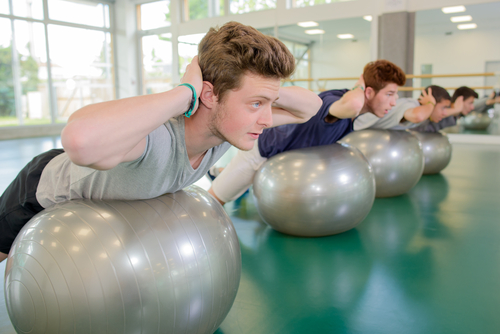Is Exercise Beneficial for Teen Mental Health?

Playing outside for hours or letting your kid ride their bike through the neighborhood with a gang of their friends seems to be an activity of the past generations of adolescents. With all the crime that has become more prevalent, busier schedules, and the ease of technology, physical activity has been put in abeyance as a lower priority to the detriment of your teen's mental health. Influencing teens to exercise more frequently can benefit their mental health in variety of ways.
Physical inactivity has been linked to an increase in the development of psychological disorders in teens. Without having regular exercise, the brain becomes more incompetent to produce natural chemicals that enhance an adolescent's sense of well-being. For mild cases of depression and anxiety, the positive effects of physical activity have been comparable to taking antidepressants or attending cognitive behavioral therapy.
Depression and anxiety tend to produce negative thoughts from excessive worry that exercise can alleviate. Endorphins are released to give the body a natural high. Serotonin levels are positively impacted that are key to the stabilization of mental health and can also allow teens to get a better night's sleep. The body will produce lower levels of the stress hormone, cortisol, when exercise is increased. Norepinephrine, a neurotransmitter in the brain, is stimulated from physical activity to improve your teen's mood. A teenager can feel begin to feel more confident, have a better body image, and make a positive influence on the symptoms of their mental health issues by adding more physical activity to their life.
You may not get your teen running a marathon any time soon, but just getting them out to do anything more than just sitting around playing video games or binge-watching Netflix is progress. Encourage your teen to make their physical exercise more fun by walking the dog while skateboarding, learning how to hula hoop, or playing Marco Polo in the pool. The point is to get them moving in any capacity that you can. While it may be difficult to get some who is experiencing depression or anxiety motivated to start doing something new, it will be worth it to give it a shot. Their quality of life could become much better with a kind and loving nudge.
There is no denying that improvement to the physicality of your teen could directly affect their mental health. Encouraging your teen to form a regular habit of exercising can be instrumental in obtaining ongoing mental health benefits.
Stonewater Adolescent Recovery Center is a comprehensive dual-diagnosis treatment facility that offers an array of services that range from fully supervised withdrawal management to residential treatment in hopes of gaining long-term sobriety and wellness. Adolescents learn about triggers and healthy replacements to regain a positive physical response to activities they can learn to enjoy again.
Call us today to start living in your recovery: 662-598-4214

.jpg)

